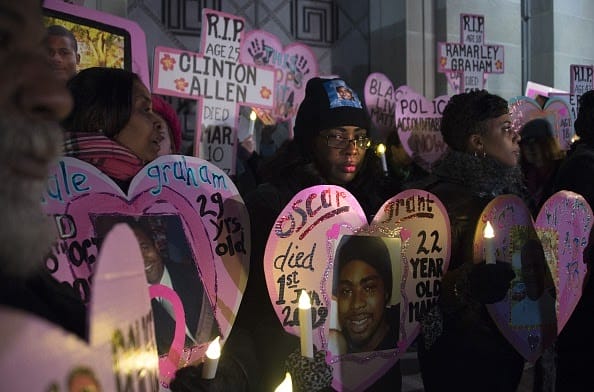
Growing Up in Oakland: My Perspective on Urban Gun Violence
I’m a proud Oaklander.
Oakland is a vibrant city with a diverse culture. It’s filled with amazing food, art, music—and unfortunately, guns. Growing up in Oakland, guns have always been a part of my life.
I can’t read the news, talk with neighbors, or attend community events without the topic of crime coming up. I always feel the subtle but ever-present fear of guns and gun violence in my neighborhood. From the gunshots that ring out on the Fourth of July, to recently when my neighbor was robbed at gunpoint on his way to work, it’s clear that Oakland has a gun violence problem. While I feel very fortunate that I haven’t experienced gun violence firsthand, others in my community haven’t been so lucky.
When my neighbor was robbed recently at gunpoint, I was fast asleep a few blocks away. On that particular morning, my mom was distracted by some task at home and waited a little longer than normal to leave for work. Had she left when she usually does, she could have been the one robbed at gunpoint. Ten minutes might have drastically changed our lives.
Sometimes I think the easy thing to do would be to try and ignore what’s happening around me. And truth be told, at times I wish I could. But that’s not who I am. Guns pose a serious threat to my community, and something needs to change.
While gun violence has declined in Oakland over the past 5 years, shootings and gun homicides are still an acute problem for the city. Oakland is like a lot of large urban cities in that regard. According to Brittany Nieto, a research associate for Giffords Law Center to Prevent Gun Violence’s urban gun violence initiative, while many cities experience high levels of gun violence, Oakland is unique in terms of how it has decided to address its gun violence problem: by addressing the vulnerable circumstances many residents experience that contribute to violence.
Several other communities around the country have been testing tangible solutions that are proving successful. I don’t claim to have all the answers, but it seems clear that there are a few basic steps states need to take that would go a long way toward creating change.
- States must work to implement some basic commonsense gun reforms, including universal background checks. We need to close the private sale loophole and prevent private gun dealers from selling guns without conducting a background check on the purchaser. This will help make sure that guns are only sold to people who are able to pass a background check.
- We should prevent people from buying more than one handgun at a time. Individuals who seek to purchase more than one gun generally use the gun in crime-related activity. Studies by the Bureau of Alcohol, Tobacco, Firearms, and Explosives have found that at least 20% of all handguns recovered in crimes were originally purchased as part of a multiple sale.
- From a local perspective, Oakland should continue to expand its Ceasefire program. Ceasefire is an evidence-based violence reduction strategy credited with large reductions in violence, and other cities struggling with violence would be wise to fund these kinds of programs.
The city of Richmond developed a similar initiative, the Operation Peacemaker Fellowship, that has been in place since 2014. This program targets at-risk individuals to help decrease gun violence and reduce the direct impact of guns in the community. As part of the initiative, they also opened an office called the Office of Neighborhood Safety, which helps to reduce gun violence through a partnership they’ve developed with community members and service providers. Since implementing these initiatives, Richmond saw its homicide rate drop from 40 homicides per 100,000 people to 11 homicides per 100,000. Richmond went from having one of the highest homicide rates in its history to the lowest rate the city has seen since 1971.
While I know one program can’t solve Oakland’s gun violence problem on its own, Ceasefire is a step in the right direction. I believe that if we can come together as a community and implement local programs while at the same time pushing for broader changes at the state level, we stand a chance of addressing the gun crisis in our cities.
This problem has gone on for far too long; it is time for a change. Change is both possible and necessary, but we need to act now.